So pack your sneakers and prepare to smash your daily step goal. These five vacation destinations are havens for walkers. They offer miles of paved paths, riverside rambles, monument-strewn promenades, and even a punk rock stroll.
5 walkable U.S. cities that make great vacation spots
1. Chicago, Illinois
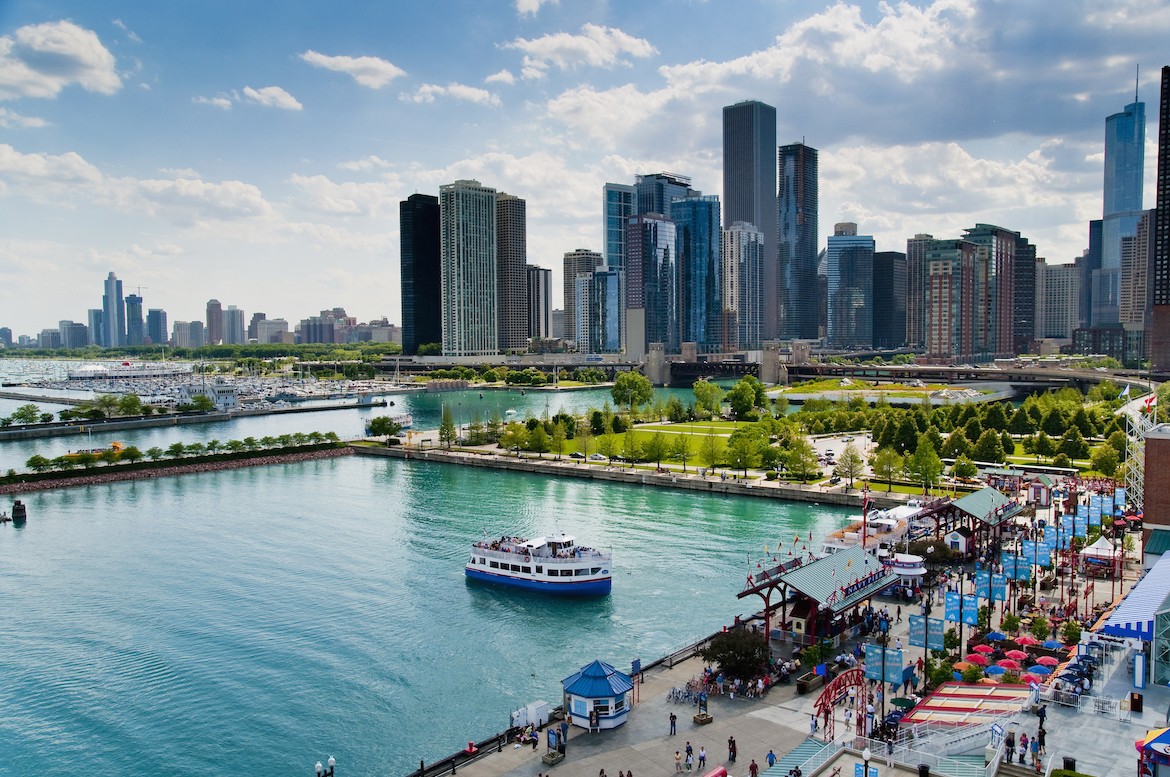
It’s a good thing the Windy City has miles of walking trails, some surrounded by local art, others that wind along waterfront. Feast on the area’s famed deep-dish pizza at Lou Malnati’s Michigan Avenue location (on the ground floor of the Wrigley Building), then head to the Riverwalk, a 1.25-mile path where you can soak up river and architectural views. For a much longer walk (on in which you can sample the city’s signature hot dogs, au jus-dipped Italian beef, and Chicago-style popcorn in addition to the pizza), check out the Lakefront Trail, 18.5 miles of pedestrian pathway along Lake Michigan.
To get a peek at Chicago’s hippest neighborhoods—including Wicker Park, Bucktown, Logan Square, and Humboldt Park—make your way to The 606, an elevated trail built on an old rail line. See flowers in bloom, spot art installations, or stop by for a stargazing event—all within the trail’s 2.7 miles. Want to make the trail your vacation hub? Wicker Park’s popular boutique hotel The Robey is nearby. Also just off the trail, Logan Square hotspots The Moonlighter and Outside Voices serve up local beer and natural wines, respectively, plus nibbles, should you find yourself hungry.
2. New York City, New York
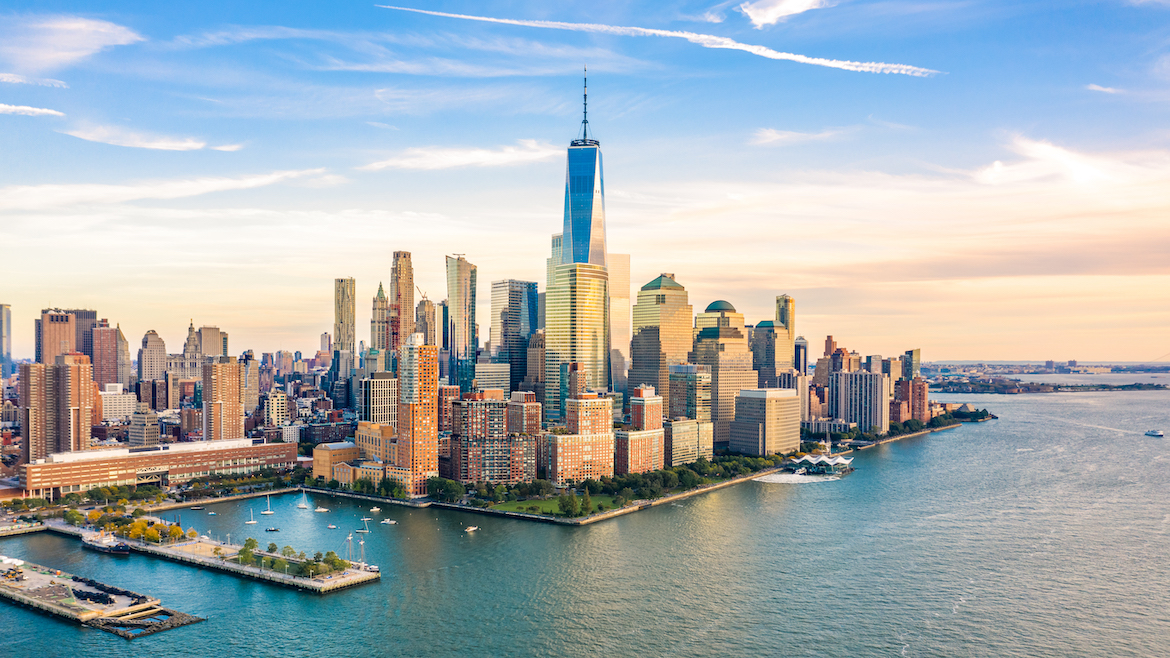
The Big Apple’s subway system and cabs have a worldwide rep, but any local will tell you that scooting around the city by foot is just as important. Among New York’s most scenic places to walk, Central Park takes the cake with 58 miles of hiking trails, wooded areas, and reservoirs. Crossing the Brooklyn Bridge from Lower Manhattan to Downtown Brooklyn (just over a one-mile stretch) is another classic stroll. And though it’s notably newer, the High Line—the former rail line turned elevated park on Manhattan’s West Side—has already become a quintessential NYC saunter.
But because New Yorkers are nothing if not innovative, let a local be your guide on a themed walking tour. Go on a Brooklyn Pizza Walk, take a bagel tour of Midtown, or enjoy a two-hour amble inspired by the birth of punk rock. Loved Hamilton on Broadway? See how the revolutionary rebel and his pal George Washington really spent their time in the Big Apple on the Hamilton & Washington in New York City tour of Lower Manhattan.
3. Charleston, South Carolina
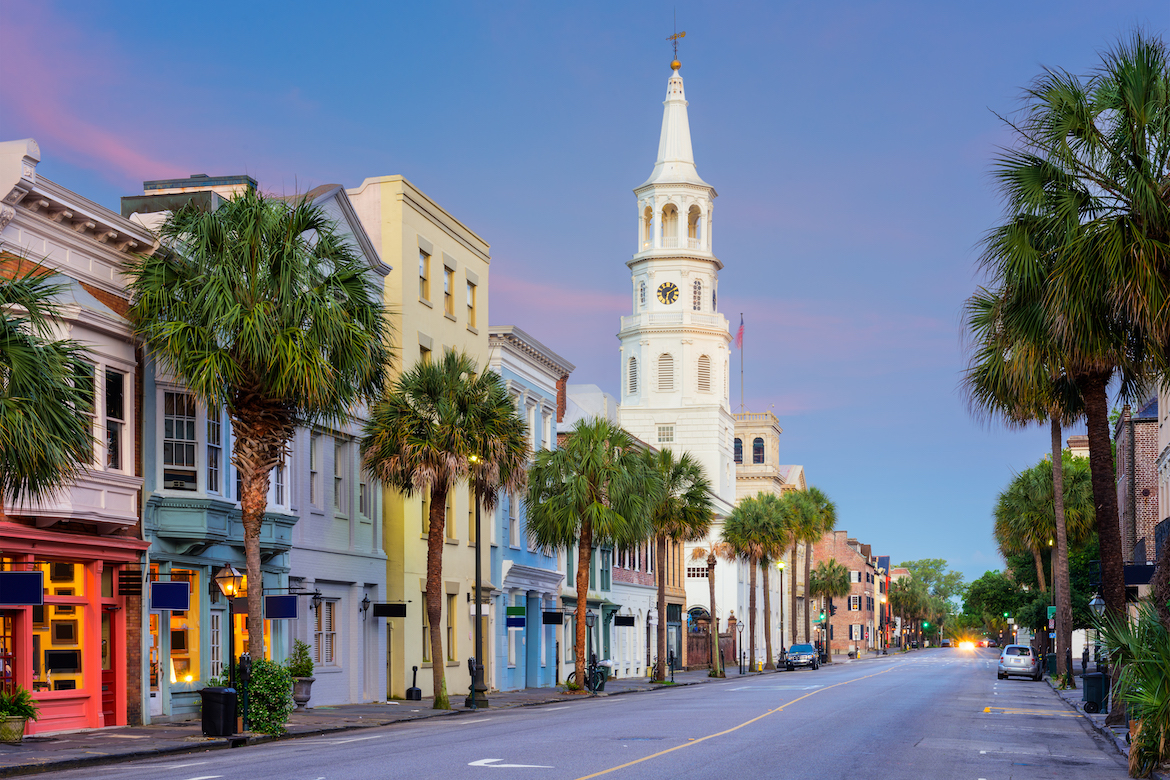
Shop a 19th-century market, pose in front of the city’s iconic pineapple fountain, and peep a row of charming, pastel-colored homes—all while getting around by foot. The Charleston City Market is always a great place to start an adventure. Established in 1807, the market is stocked with local art, beloved eats (like Callie’s buttery handmade biscuits), and sweetgrass baskets—one of the country’s oldest handicrafts.
From there, walk along Church Street and see why Charleston earned the nickname the “Holy City” (it’s famous for the many church steeples that dot its downtown skyline). You’ll pass St. Philip’s Church and the French Huguenot Church before turning left on Queen Street and heading to the Waterfront Park. There you’ll see the Pineapple Fountain, a favorite photo op and the city’s oversized symbol of hospitality. Back on East Bay Street, feast your eyes on Rainbow Row, 13 colorful homes built in the 1740s.
But if your visit to the market inspires a full shopping day, you could stick to walking historic King Street, which is lined with boutiques such as Hampden Clothing and Croghan’s Jewel Box, plus top-notch dining like The Darling Oyster Bar and Halls Chophouse.
4. San Francisco, California
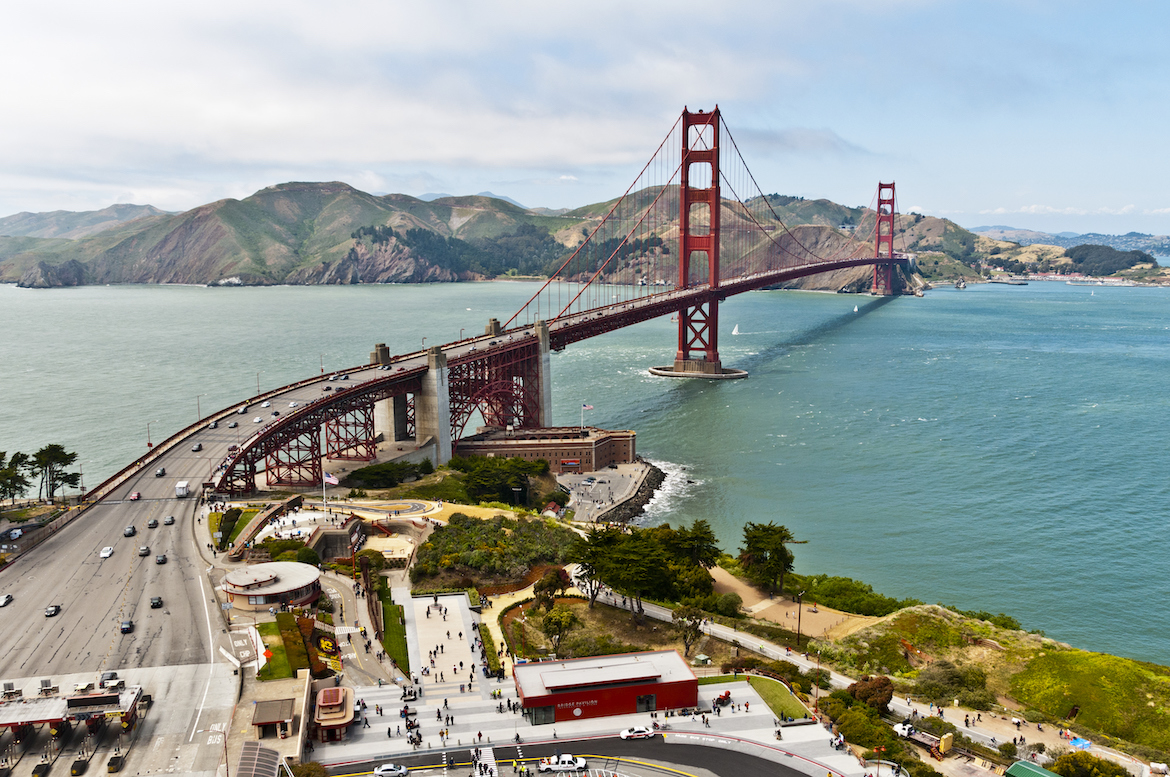
Don’t let the hills intimidate you—San Francisco is best explored by foot. And any Frisco first-timers should know 1. You actually shouldn’t call it Frisco (loads of locals despise the nickname) and 2. A stroll through Chinatown and North Beach is a must. In Chinatown, you’ll pass irresistible souvenir shops and restaurants on the main street, Grant Avenue, but be sure to pop into some of the neighborhood’s 41 colorful alleyways, too.
As you walk north, head over to Columbus Avenue, and soon you’ll be in North Beach, once the center of San Francisco’s Beat culture. Buy a Kerouac novel or a book of Lawrence Ferlinghetti’s poetry at City Lights bookstore, then pop into historic bar Vesuvio Cafe. From there, it’s only a half mile north to Coit Tower or a mile to Fisherman’s Wharf.
If you’ve already been there, done that with Chinatown and the Beat hotspots, it may be time for some serious walking at the Presidio. The former military post is now a 1,500-acre park with a dozen hiking trails. The Golden Gate Promenade will give you glorious views of the Bay Area’s favorite bridge, while the Batteries to Bluffs Trail takes you along wild shoreline, and Lovers’ Lane is a picturesque path lined with trees. (Fun fact: Back in the 18th century, Lovers’ Lane was a shortcut used by Spanish soldiers.)
5. Boston, Massachusetts
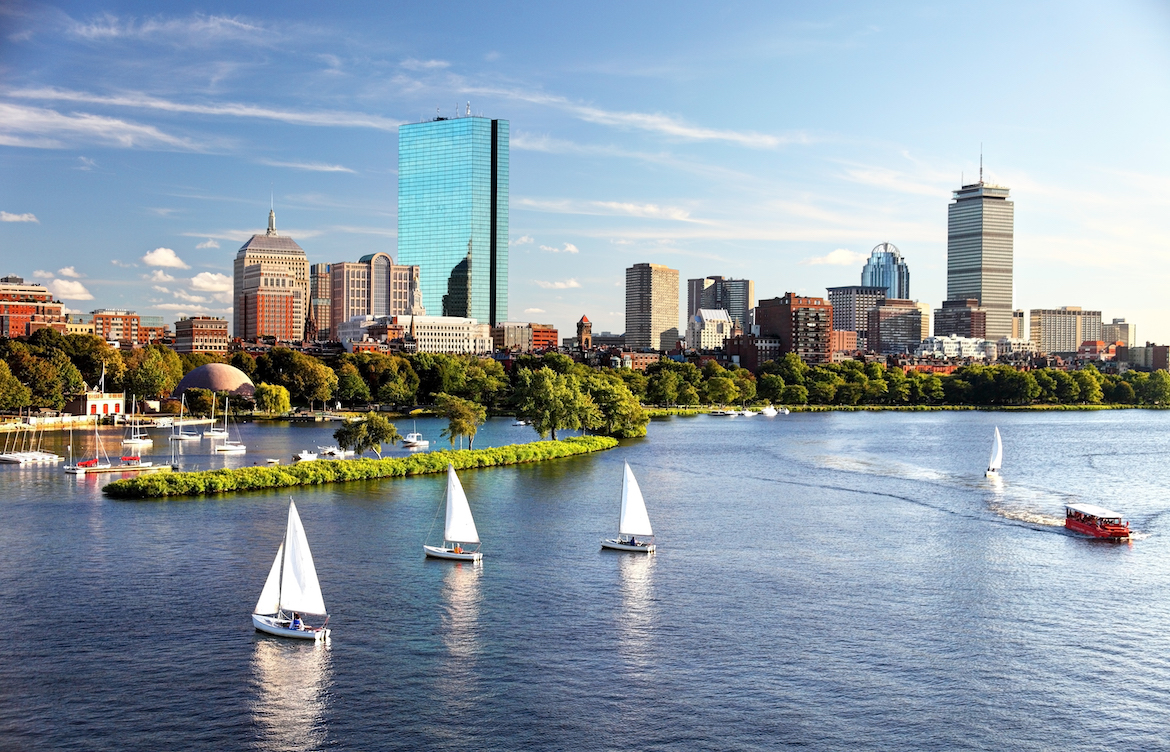
How do you cram 250 years of history into a hike? Hit Boston’s celebrated Freedom Trail. This 2.5-mile route includes museums, monuments, a ship, and the site of the Boston Massacre—with 16 historic sites in all. Of course with all those attractions, you may want to tackle the trail over a couple days. If so, snag a hotel package, some of which even include a tour with a costumed guide. For the 21 and over crowd, the trail also offers a private pub crawl to historic taverns, so you can combine your strolling with a bit of sipping.
But the truth is, you can’t trek far in Boston without stumbling upon something historic (or a spot to grab a beer). Along the Charles River Esplanade, a three-mile stretch on the Boston side between the Museum of Science and the Boston University Bridge, you’ll find a slew of memorial structures, plus the Owl’s Nest craft beer garden, which is open in warm weather.
If waterfront walking is your thing, be sure to check out Boston’s Harborwalk. At 43 miles, this is one of the longest linear parks in urban America. It stretches from East Boston to Dorchester, connects a number of trails and parks (including the Charles River Esplanade and the Freedom Trail), and has nine public beaches, a dozen museums, and very likely that one eatery you’ll stumble upon and tell all your friends about once you get home.
Our editors independently select these products. Making a purchase through our links may earn Well+Good a commission.

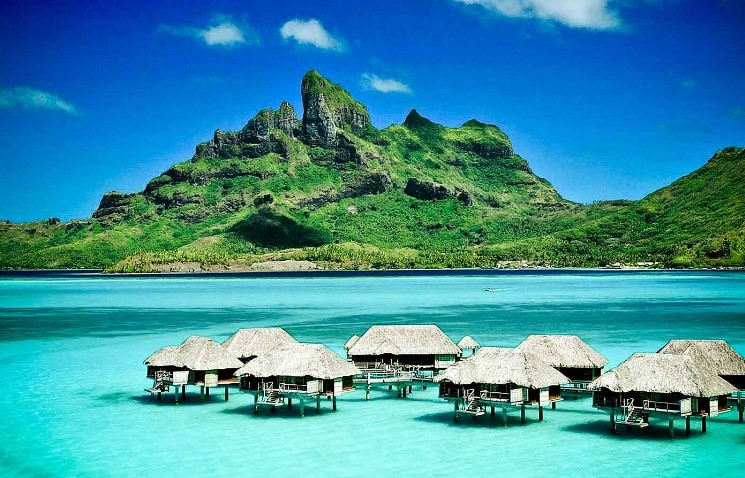
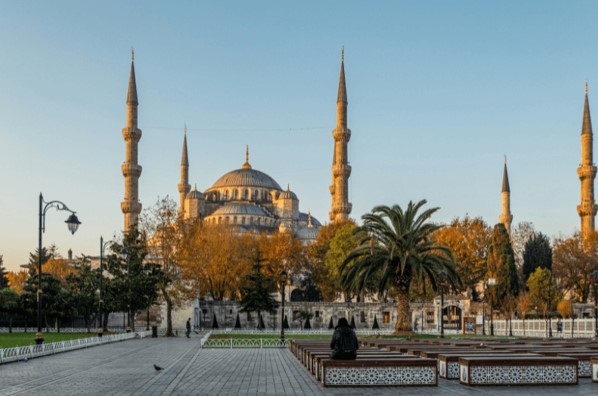
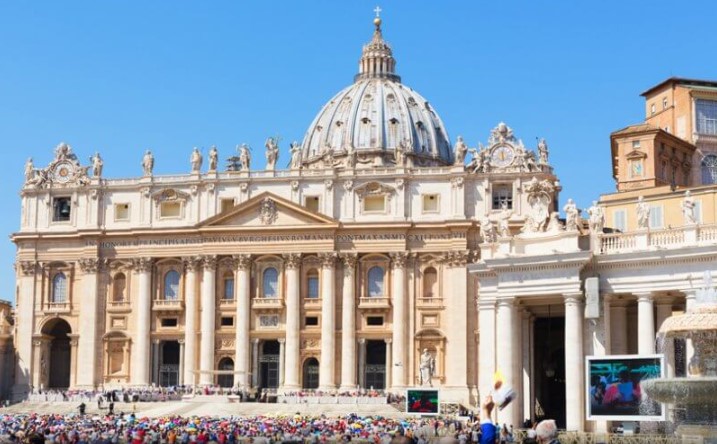
More Stories
Best Places to Visit in December
How to Make the Best Vacation Plans
10 Cheap Vacation Spots In Miami You Should Visit This Summer